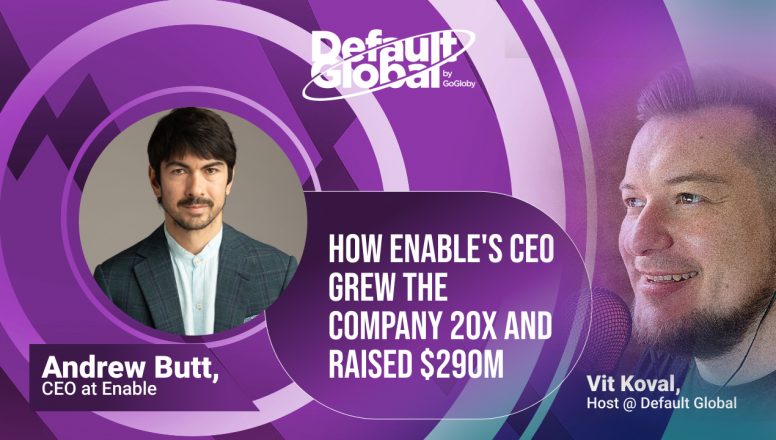Meet Gabriel Puliatti, Founder / CEO at Emptor:
Gabriel Puliatti is the CEO and founder of Emptor, a technology platform that helps companies hire and scale in Latin America safely and efficiently. Embodying the spirit of Default Global, Gabriel is an American Peruvian with an Italian father who has lived in various countries, including Egypt. With extensive experience in legal and technology sectors, Gabriel has led Emptor to become a prominent player in the background check and identity validation industry, serving diverse clients across the Americas.
Listen Up: Gabriel Puliatti, Founder / CEO at Emptor Full Podcast Episode on Spotify
Watch Now: Gabriel Puliatti‘s In-Depth Talk with Vit Koval
Quick Read: Gabriel Puliatti, Founder / CEO at Emptor, Interview Highlights
What is the story behind Emptor and the services you offer to companies looking to hire in Latin America specifically?
Gabriel explained that Emptor was created to help companies hire and scale safely and quickly in Latin America, initially assisting Uber in 2016. The company then expanded its services to cover more countries and different industries, now offering a full background check across Latin America. Gabriel stated, “We help either local companies, large corporates, or international companies that are trying to hire across the region, especially since last couple years now, we’ve been seeing lots of growth in the near sharing.”
What led you to specialize in automated background checks and identity validation? Did you have some background in this area before?
Gabriel shared that he comes from a legal family and has always been around technology. He realized there was a massive requirement for automated background checks and identity validation, which led to the creation of Emptor. “Once we realized that there were massive requirements in the space, that’s when we realized that there was a real business that would be built there,” said Gabriel.
What types of businesses typically seek your assistance at this point?
While Emptor started with technology companies, they have expanded their services to more traditional companies in recent years. Their clients now include local and international companies looking to hire across the region, with a strong core of technology-aware companies. Gabriel mentioned, “In general, it’s whichever company is interested in beefing up their security and identity processes and making just a safer environment for their employees.”
Can you give us a rundown of the tech and method you use for automated background checks at Emptor?
Emptor uses a hybrid approach to background checks, focusing on a scale while providing a high safety level. Emptor combines web scraping, integration with government websites, and maintaining copies of information to perform background checks. Their internal dashboard provides information about the process, allowing their legal experts to make final determinations based on their expertise and customer requirements.
Gabriel highlighted, “We do a secondary review where we look for any homonym information and try to assess a homonym risk to provide as much context as possible to the person requesting the background check. That way, we don’t reduce the homonym risk to zero but have much better results than most competitors.”
Have you noticed any shifts in demand for your services with the new trend for global hiring and remote work?
Gabriel acknowledged that there has been a definite increase in demand for their services, especially since the pandemic, as more companies are embracing remote work and offshore hiring. He noted that they primarily see this trend in larger countries like Mexico and Colombia, as well as in Brazil and Argentina, for technology-related positions. The trend applies to smaller countries like Ecuador, Peru, and Chile, where companies hire internationally. Gabriel said, “Having a passing background check from us is a great way to show that, at a minimum, you’ve done your homework on a candidate.”
What do you think the future of hiring looks like, and how is Emptor getting ready for those changes?
Gabriel believes that the trends of remote hiring and higher salaries across the region will continue as more companies become comfortable with working remotely. He anticipates that most companies will still work primarily from offices, but there will be an increase in satellite offices and remote employees. With the rise of AI, he expects that smaller companies will be able to produce more while remaining lean, making it easier for them to hire across the region. He emphasized that “if your company has multiple AI agents working for you, you probably also have multiple remote employees all over the region because the text is a universal interface.”






